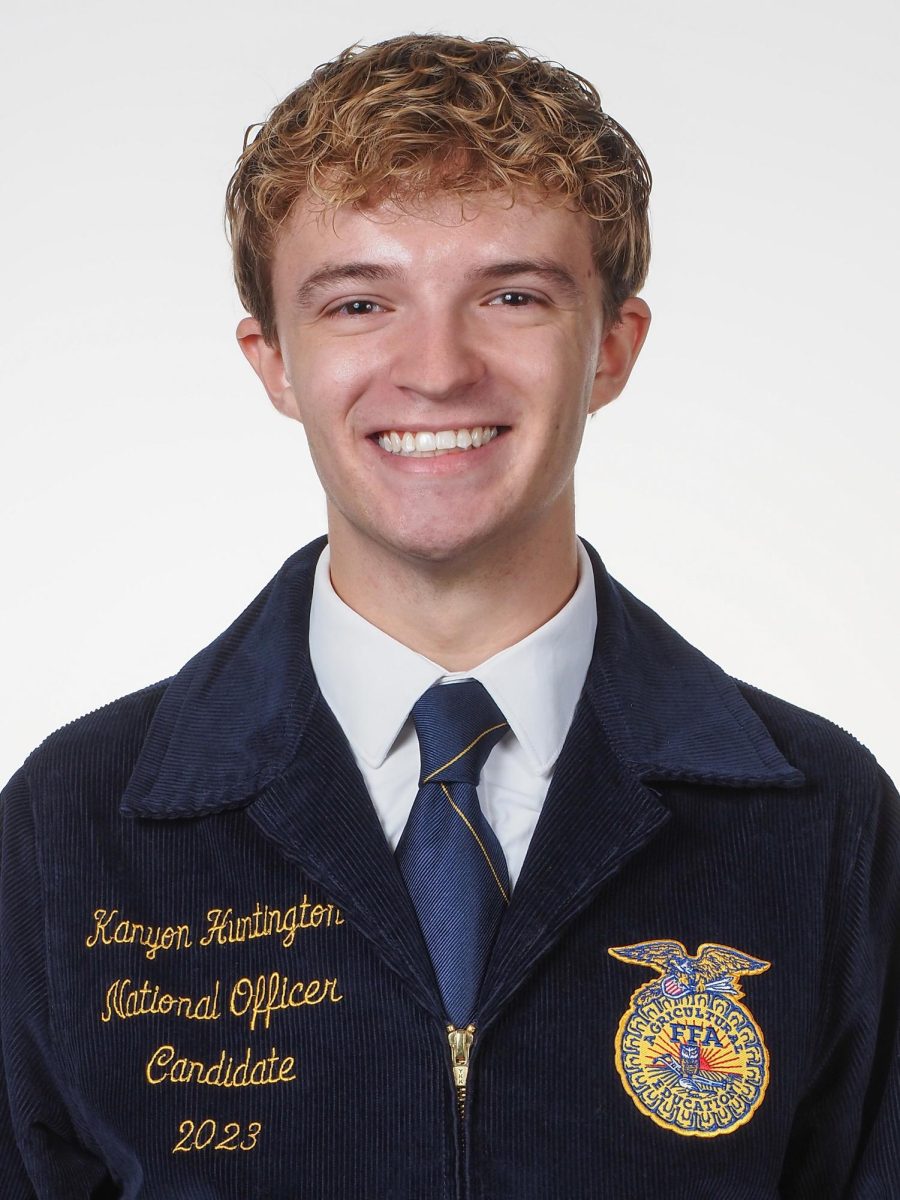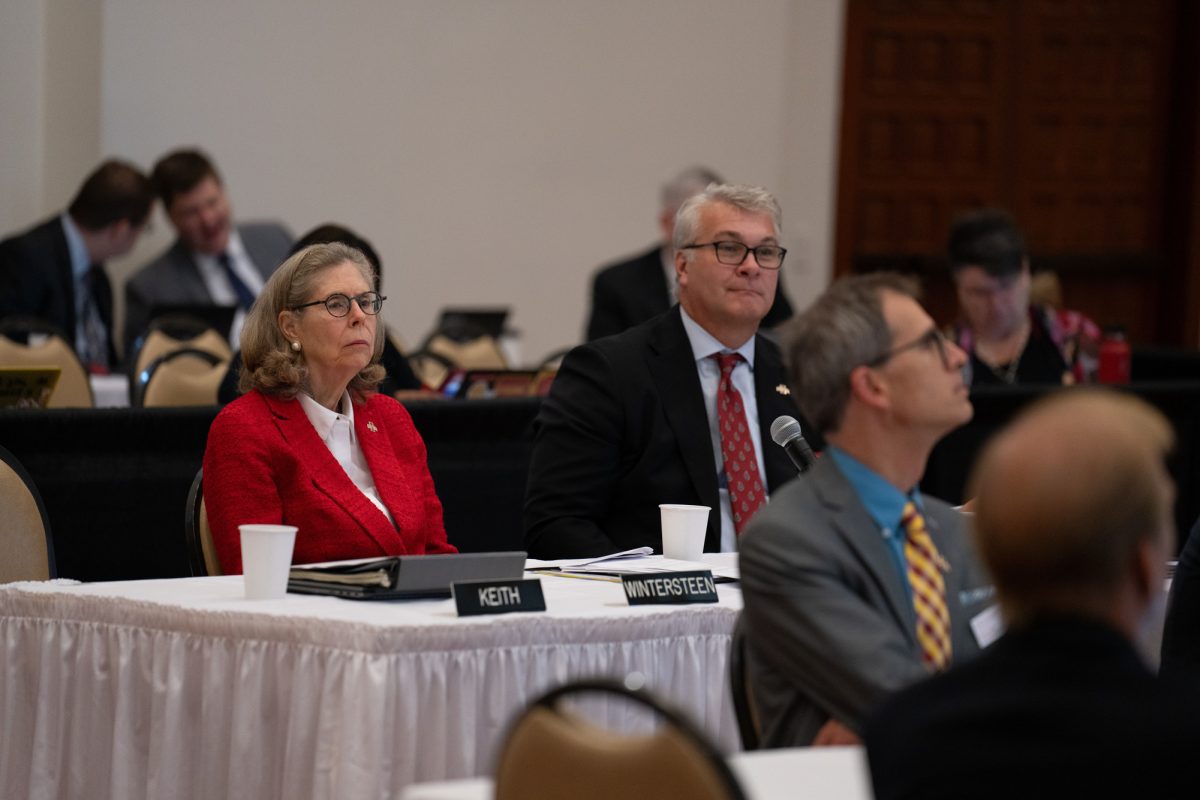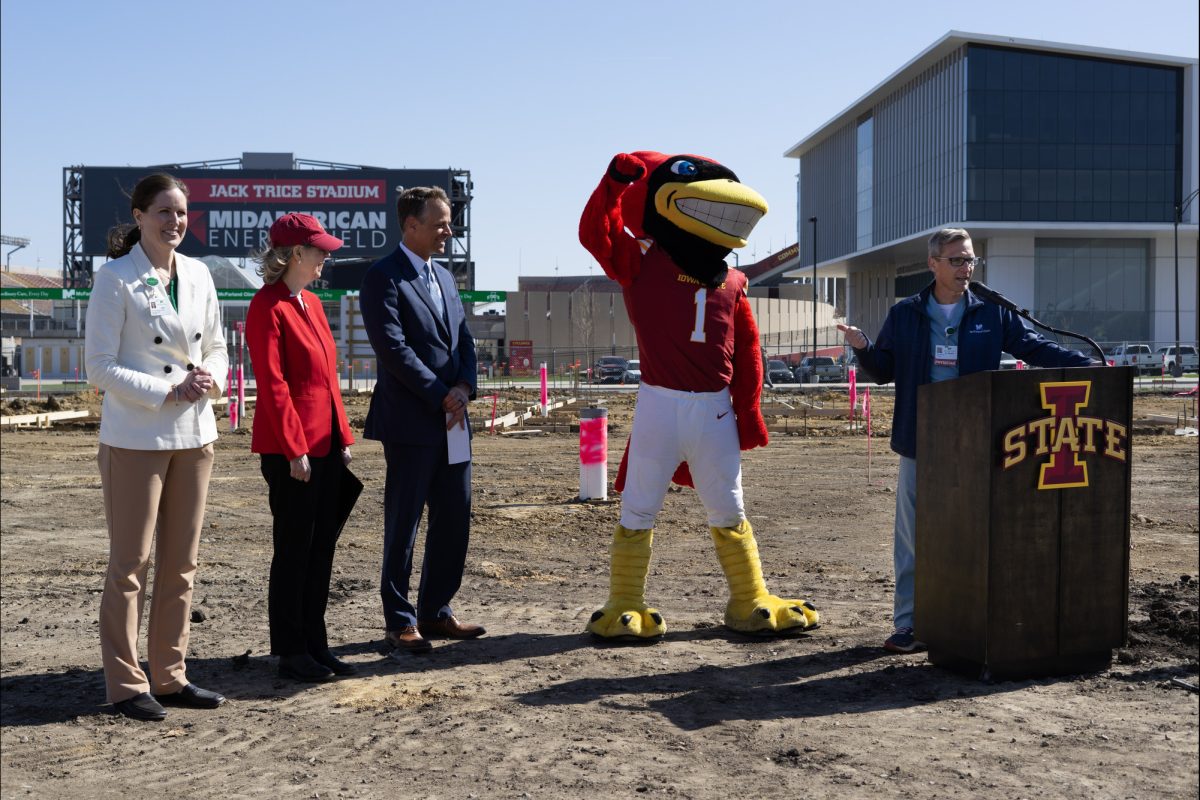On Wednesday, Iowa State Student Government Sen. Trey Wellman, a junior in agricultural and rural studies, wrote a resolution congratulating Kanyon Huntington, a senior in political science, on becoming a National FFA Organization Officer, representing the central region as a vice president. He will represent nearly one million students across the country.
FFA, an organization for students interested in agriculture and leadership, announced six national officers, with four positions representing regions, one serving as the secretary and one serving as the national president.
The officers represent the organization and act on behalf of the organization by furthering initiatives and education.
Huntington grew up on a sheep and cattle farm in southeastern Iowa, so being involved in agriculture is nothing new to him. He joined FFA during his first year of high school after some convincing from his adviser telling him to do contests. He quickly saw success in soil judging and creed speaking. This allowed him to step out of his comfort zone and gain some individual achievements.
“I can do this and it’s helping me grow as a person and as a leader.” Huntington said about the success he saw when he started FFA.
He continued these contests until he decided to run for district office. He got the position during his second year and served through workshops at different chapters. He then decided it was time to run for state officer. As a state officer, he served for a year traveling all over the state, going to more than 40 tracker visits and ended the year going to the state convention.
After failing to get state president, he decided to take a year off from FFA and just enjoy the college experience. He picked up a job, met new people and attended classes, but could still tell something was off.
“I still have this calling and this feeling that I was meant to serve a higher purpose and service organization in a different way,” Huntington said.
He decided it was time to run for national office. He went through an intense interview process to determine if he would get the position.
The first step was to submit an application, which mostly resembles a resume. It includes community service and any achievements one might have had either in or out of FFA. Another portion of the application is writing an essay on a basic question such as “Why do you want to serve?” After the initial application, there are multiple months of prepping for interviews.
There are several rounds of interviews, which start at the national convention. The first round of interviews is getting to know the applicants. The second round of interviews is nine one-on-one interviews with the nominating committee. These questions range from behavioral to leadership questions and how well one might work in specific situations. The final round, entitled stand and deliver, occurs right before the first cuts are made. Applicants have twenty minutes to develop a five-minute speech based on a prompt they are given. The speech has to pertain to either FFA or agricultural education.
After these first three rounds, there are advancements. Only 21 of the 35 candidates move on to the next round of interviews. They call them round robin and media interviews: conversations with stakeholders mimicking the applicants being at a conference or even an airport talking about FFA, agriculture or agriculture education. An activity takes place that night where the committee is able to see applicants in a more informal way and evaluate how they handle themselves and interact with others.
Applicants then have 30 minutes with a prompt to come up with a fifteen-minute objective where they are facilitating to actual members that they pull in from the convention. Finally, they have a personal round conclusion, which is about five questions in ten minutes, where there is one standard question the nominating committee will ask them, and then there are four more questions about the candidates themselves.
After the long, intense interview process, Huntington was selected as one of six national FFA officers. “It can be kind of taxing, you’re really kind of pushing your brain when you’re thinking about what you want to facilitate, or maybe you’re thinking about how you best want to convey yourself when you’re thinking about those personal questions,” Huntington said.
Huntington said he most looks forward to traveling all over the country and meeting new people. He said he is excited to hear about their experiences in FFA and how they have not only grown as leaders but as agriculturists.
“I think that for me, I love meeting new people. I love meeting people where they’re at and getting to know more about them as individuals or more about their state associations,” Huntington said.














